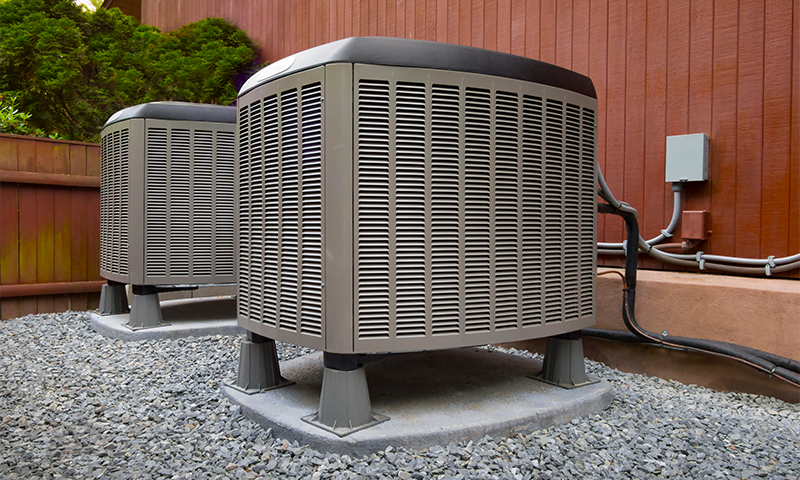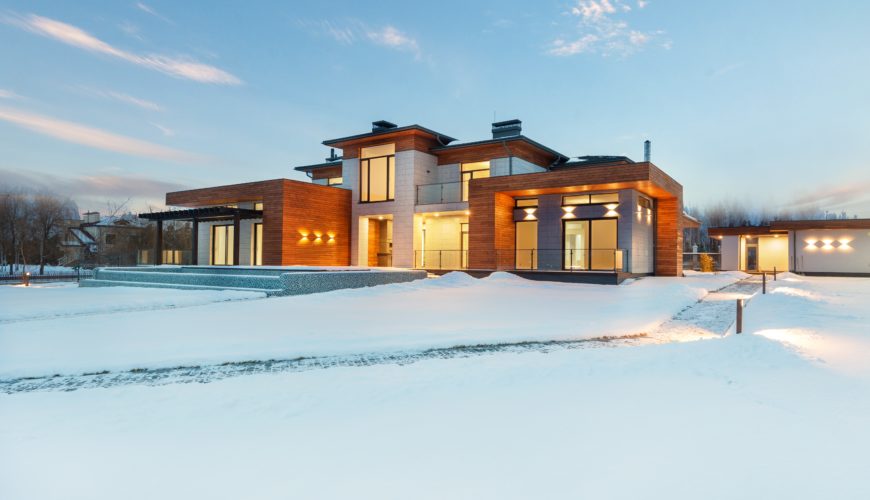Out of the various components in an HVAC system, filters are one of the most important ones. HVAC filters should be changed more often than you think. Your HVAC system loses its efficiency if the filters are not changed regularly. Typically, you should change your HVAC filters every 3-6 months depending on the type of HVAC system.
HVAC filters are designed to protect your system from dust, pollen, and other contaminants. Over a period of time, the filters get clogged and need replacement. How sooner your filters get clogged depends on your system and the environment. For example, people living near polluted or industrial areas may need to change their filters before the recommended time, say every 60 days.
Often people are unsure when to change their HVAC filters. In such a case, it’s advisable to seek help from HVAC professionals. Professionals like Clover Services have provisions for maintenance checks that cover all the elements of an HVAC system including the filters. Maintenance checks will keep you updated on the condition of your filters. Their technicians will also recommend a replacement if need be.
How Often Should You Change Different HVAC System Filters?
Different HVAC system filters have different lifespans. Let’s take a look at the ideal time period of changing different HVAC filters.
Furnace Filters
The average time period to change furnace filters is every 3 months. However, it can vary depending on the climate of a place. People residing in cold regions might need to change their filters before the ideal time as the furnace is used more in such places.

AC Filters
The ideal time for changing the ac filters depends on the type of system and the environmental factors. Disposable ac filters should be changed every 1 to 3 months, whereas high-quality thick filters require replacement once every 6 to 12 months. Also, people living in hot regions need to replace ac filters before the recommended time period because of excessive use.
Boiler Filters
The duration for changing boiler filters depends on the type of boiler. Fiberglass boiler filters are required to be changed more often as compared to pleated boiler filters. Usually, fiberglass filters need replacement every month, whereas pleated boiler filters should be changed once every 3 months. On the other hand, electrostatic boiler filters don’t require replacement.
Why Should You Change HVAC Filters Regularly?
Clogged HVAC filters not only result in poor system performance but the air quality is also compromised. There are a number of reasons for changing your HVAC filters regularly. Over time, the HVAC filters get clogged with dust particles. It’s a sign that your filters need replacement and failing to do so can lead to system malfunctions. Besides high energy bills, another big disadvantage of clogged filters is the health concerns that crop up due to bad air quality.
Below are some of the major reasons for changing your HVAC filters regularly.
To Cut on Energy Bills
Clogged filters could be a major cause of high utility bills. Blocked HVAC filters resist the easy flow of air through the system. As a result, your system has to work harder in order to reach the optimum temperature. This eventually leads to more power consumption.
Whereas, clean HVAC filters work smoothly without consuming more electricity. Consequently, your energy bill will be lesser than what it was previously as your system is more energy-efficient after the filter replacement.
To Prevent Your HVAC System from Damage
HVAC filters are designed to protect furnaces and other air conditioning equipment from dust and contaminants. However, clogged filters can lead to a thick layer of dust accumulating on the moving parts including motors, pulleys, and fans. It makes the moving parts develop friction causing them to work harder.
As a result, the system can face problems like a frozen coil or an overheated compressor. There are also chances that the entire system collapses. Therefore, you should change your filters more often to prevent the overall functioning of your system.
To Avoid Health Issues
If you don’t replace your HVAC filters regularly, the air quality might be compromised. The air you breathe is no longer pure and free from dust. As a result, you can develop breathing issues, allergies, and other problems. Prolonged and serious health issues may include cancer and heart diseases.
People living in polluted areas might consider getting their regular HVAC filters replaced with high-quality filters to prevent airborne contaminants. High-quality filters, exclusively designed for environments with poor air quality, can drastically improve the air quality and prevent any major health issues.

To Increase the Lifespan of Your HVAC System
It is necessary to change your HVAC filters regularly if you want your HVAC system to last longer. Usually, an HVAC system lasts for 20 to 25 years or even more. However, a poorly maintained system can stop working much earlier than its average expectancy rate. If you want your system to have a prolonged life, get it checked regularly.
To Prevent Furnace Failures
As clogged air filters cause the HVAC system to overwork, the entire system can eventually break. The cost of replacing the entire system is no less than thousands of dollars. Whereas replacing the air filters once every two to three months will cost you much less.
Endnote
Using clogged filters for a prolonged period of time has many disadvantages including system damage, health issues, and high energy bills. Therefore, it’s advisable to avoid using the same filters for three or more months.
You can seek professional help to get a clear idea of how often you should change your HVAC filters and get them replaced at affordable rates. Reliable companies like Clover Services can run maintenance checks on your system to give you an estimate of how often you should change your filters. So, stop using clogged air filters, and start prioritizing your health and the health of your system.




